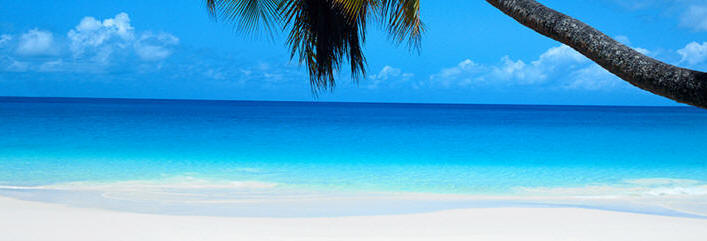buffet radio Jimmy Buffett videos welcome to fin land tour Creative unique Margaritaville gifts keepsakes Footwear Shoes Loafers Sandals island lager games to play at parties island news Sirius Channel 31 Tequila Win trip," />
<meta name="description" content="Jimmy Buffett's Margaritaville - Online State of Mind - A Jimmy Buffett Caribbean Island Online Vacation Destination! Grab a Landshark Lager kick back and experience Margaritaville adventures latitudes clear of ordinary Kenny Chesney, No Shoes Radio, Internet Radio John buskell Tiki Island Radio The backyard tiki bar books cooking tropical travel




Tiki Island Radio


Welcome to the island...
We're serving up paradise one song at a time.
Take a break from the daily grind with a little bit of island time....
Hawaiin Reggae (Jahwaiian), Reggae, Trop Rock, Calypso, and Island Vibes.
Broadcasting live shows daily
Home About Us Listen Now Schedule Mobile App Contact Us Advertise Site Directory

Music and light discussion with topics from the tropics, international living, retirement in paradise, cooking on island time, and much more!!


Fight the traffic jams with tropic jams!! Monday through Friday 7AM - 9AM EST. and again at 4PM - 6PM EST.
Download Our Free Mobile App.
&
Your island
escape begins
here...
Articles
Home Artist Bio's Articles Recipes Cd Releases Gift Shop Properties for sale Travel
Belize: The Top English Speaking Retirement Haven in the Caribbean
Dear Reader,
Belize sets itself apart from its neighbors in several ways—not least of which is the fact that the population living in Belize speaks English. It makes living and doing business here easy. What’s more, Belize is a small, peaceful country where you can beat the bureaucratic beasts by simply walking into the Minister of So-and-So’s office and sitting down to talk things out.
In many ways, this country is like a big small town. Its far-thinking banking laws have given the nation a distinct advantage when it comes to banking privacy. In an age when the accounts in other jurisdictions are under attack, those in Belize remain secure…which is no mean feat.
While it’s true that Belize is not the most affordable place to buy property, this country offers economic stability, ease of living, and a cost of living that, while not dirt-cheap, is nevertheless good value when you compare it with that of other Caribbean retreats.
Belize’s retiree program offers attractive incentives to foreigners looking to live in Belize—particularly those who are already planning to declare their permanent residency outside the U.S.
Plus, Belize is just plain beautiful. From its Caribbean shores to its jungle interior, this nation has great natural beauty to recommend it—blue water and deserted beaches, and inland retreats where jaguars and scarlet macaws still live in their natural habitats.
We have compiled this special report to give you a taster of what Belize is all about. Read on and take a look at what this beautiful country can offer you.
Yours sincerely,
Jackie Flynn
Publisher, International Living
Table of Contents
Fast Facts
Communications
The Economy in Belize
Where to Buy Real Estate in Belize
Buying Real Estate
Renting in Belize
Belize Health Care
Visa Requirements
Embassies
Retiree Benefits in Belize
Cost of Living in Belize
Taxes in Belize
Financial Matters
Moving to Belize
Expat Contacts
Travel Info: How to Get to Belize
Making Money in Belize
Fast Facts
History: Belize was the site of several Mayan city states until their decline at the end of the first millennium A.D. The British and Spanish disputed the region in the 17th and 18th centuries; it formally became the colony of British Honduras in 1854. Territorial disputes between the UK and Guatemala delayed the independence of Belize until 1981. Guatemala refused to recognize the new nation until 1992 and the two countries are involved in an ongoing border dispute. Guatemala and Belize plan to hold a simultaneous referendum to determine if this dispute will go before the International Court of Justice at The Hague, though they have not yet set a date.
Learning from its colonial past, the government of Belize has sought to preserve the country’s natural beauty and resources while encouraging tourism and the immigration of new residents with the means to support themselves. Tourism has become the mainstay of the economy.
Location: Central America, bordering the Caribbean Sea, between Guatemala and Mexico.
Area: 8,867 square miles (22,966 square kilometers). Slightly smaller than Massachusetts.
Population: 327,719 (July 2012 est.)
Capital: Belmopan
Geography: Flat, swampy coastal plain; low mountains in south.
View Belize in a larger map
Climate: Tropical; very hot and humid; rainy season (May to November); dry season (February to May).
Government: Parliamentary democracy and a Commonwealth realm.
Chief of State: Queen Elizabeth II (since 6 February 1952); represented by Governor General Sir Colville Young, Sr. (since 17 November 1993)
Head of Government: Prime Minister Dean Oliver Barrow (since 8 February 2008)
Language: Spanish 46%, Creole 32.9%, Mayan dialects 8.9%, English 3.9% (official), Garifuna 3.4% (Carib), German 3.3%, other 1.4%, unknown 0.2% (2000 census)
Religion: Roman Catholic 49.6%, Protestant 27% (Pentecostal 7.4%, Anglican 5.3%, Seventh-Day Adventist 5.2%, Mennonite 4.1%, Methodist 3.5%, Jehovah’s Witnesses 1.5%), other 14%, none 9.4% (2000)
Time Zone: UTC-6 (1 hour behind Washington, DC during Standard Time)
Emergency numbers: In case of any emergency, dial 90 from anywhere in Belize. This will connect you to the police.
Communications
Telephone system: Above-average system; trunk network depends primarily on microwave radio relay. Domestic system: fixed-line teledensity of 10 per 100 persons; mobile-cellular teledensity roughly 60 per 100 persons
International country code: +501
Cell phones users: 194,200 (2010)
Internet users: 36,000 (2009)
Internet country code:.bz
Internet/e-mail: Cybercafés are becoming more and more common in Belize. You’ll find cybercafés in most of the major towns and tourist destinations.
The Economy in Belize
Tourism is the number one foreign exchange earner in this small economy, followed by exports of marine products, citrus, cane sugar, bananas, and garments. The government’s expansionary monetary and fiscal policies, initiated in September 1998, led to GDP growth averaging nearly 4% in 1999-2007. Oil discoveries in 2006 bolstered this growth. Exploration efforts have continued and production has increased a small amount.
In February 2007, the government restructured nearly all of its public external commercial debt, which helped reduce interest payments and relieved some of the country’s liquidity concerns. Growth slipped to 0% in 2009, 2.7% in 2010, and 2.5% in 2011 as a result of the global slowdown, natural disasters, and a temporary drop in the price of oil. With weak economic growth and a large public debt burden, fiscal spending is likely to be tight.
A key government objective remains the reduction of poverty and inequality with the help of international donors. Although Belize has the second highest per capita income in Central America, the average income figure masks a huge income disparity between rich and poor. The 2010 Poverty Assessment shows that more than 4 out of 10 people live in poverty.
The sizable trade deficit and heavy foreign debt burden continue to be major concerns.
Labor force: 120,500
Labor force by occupation: Agriculture: 10.2%
Industry: 18.1%
Services: 71.7% (2007)
Exports: $511.7 million (2011 est.)
Export commodities: Sugar, bananas, citrus, clothing, fish products, molasses, wood, and crude oil.
Imports: $706.1 million (2011 est.)
Import commodities: Machinery and transport equipment, manufactured goods; fuels, chemicals, pharmaceuticals; food, beverages, and tobacco.
Where to Buy Real Estate in Belize
Ambergris Caye
Ambergris is the largest island in Belize at 25 miles long and a little over a mile wide, and San Pedro is the only town. About 30 years ago, Ambergris Caye became a hotspot for divers and fishermen thanks to the Belize Barrier Reef, just a half mile offshore. This natural wonderland of living coral supports a dizzying array of marine life, and it’s the main reason Ambergris Caye has seen its recent incredible growth.
Until just a few years ago, San Pedro was a little fishing village that catered to adventure tourists coming for the scuba-diving and deep-sea fishing. The main motorized transportation on Ambergris Caye at that time was golf carts. Today San Pedro is the second-largest town in Belize District with more than 12,000 people, surpassed in size only by the former capital, Belize City.
Property samples in Ambergris Caye:
A one-bedroom, one-bathroom condo that needs some fixing up. The residence is on the ground floor of a nine-unit building near the island’s airstrip on the south side of San Pedro. Price: $100,000.
A three-bedroom, two-bathroom home in the San Pablo area of Ambergris. Along with air conditioning, cable TV, and Internet, this property also has a patio/deck and its own private pool. With a total area of 1,450 square feet, this house has plenty of living space. Price: $197,500.
Placencia
Placencia is actually a long peninsula and has three population centers. Maya Beach is the northernmost and isn’t really a town…just a hodge-podge of small hotels and restaurants and a few small supply shops. In the middle of the peninsula is the Garifuna village of Seine Bight. Placencia Village at the southern tip of the peninsula, although no bigger than Seine Bight, is where the action is. It has about 600 full-time residents clustered in colorful Caribbean-style homes on stilts built on either side of the sidewalk referred to as “Main Street.”
Property samples in Placencia:
A waterfront house in Placencia. This two-story residence is located at Maya Beach, about halfway up the peninsula. With two bedrooms and two bathrooms, the house features a pool, a boat slip, a large garage and ample storage space for full- or part-time residents. Price: $229,000.
Buying Real Estate
Purchasing procedure
Once you find property that you want to buy, don't delay in making an offer. With the help of a real estate agent, prepare an Offer of Purchase to present to the property owner. The order should include your name, the name of the seller, the property’s legal description, the purchase price you're offering and the terms of the deal. You submit this with a deposit—usually 10%.
Buying restrictions
Except for nationally protected land, Belize places no restrictions on foreign ownership of real estate.
Renting in Belize
At International Living, we always recommend that you rent before you buy. Before you plunk down money on a house or condo in a new place, stay awhile and see if it suits your needs. Start your search for a rental on the Internet. You’ll find plenty of websites out there. Some real estate agents in Belize might offer rental properties.
The classified section of online local newspapers is also a good source (especially to get a feel for prices).
Belize Health Care
When Dean Barrow was running for prime minister, he was quick to address the problem of inadequate health care in many parts of Belize. Now that Barrow is in office, his government has planned several initiatives to solve the problem, especially improvements at the country’s best known medical facility, the Karl Heusner Memorial Hospital in Belize City.
Belizeans acknowledge, however, that it will take many years before the country’s health care system is on the same level with medical treatment in the neighboring countries of Mexico and Guatemala.
If you’re considering a visit or a move to Belize, rest assured that most minor ailments can be treated quickly—and cheaply—at doctor’s offices and clinics that can be found in all but a few remote areas. People who suffer from serious conditions can be taken to private clinics such as Belize Medical Associates (website: www.belizemedical.com) or Belize Health Care Partners (website: http://belizehealthcare.com). Both of these facilities offer excellent services and costs are still very reasonable. Belize does have a number of public hospitals but most expats prefer to use the private clinics.
But since all these facilities lack the quality care of hospitals in the U.S. and neighboring countries, some many expats leave Belize for more complicated types of medical treatment. Many American retirees, for instance, return home for a few days whenever they want to take advantage of Medicare. Some expats also go to Chetumal and Merida, just north of the border in the Mexican state of Yucatán, and to Guatemala City and Antigua in Guatemala.
Visa Requirements
Tourist visa: When you visit Belize, there’s no need for a tourist visa if you’re a citizen of the U.S., Canada, a country in the European Union or the Caribbean Community (CARICOM), Australia, Hong Kong, Mexico, New Zealand, Norway, or Venezuela.
If you’re from one of these countries, you can stay 30 days without a visa. To stay longer, you pay $25 a month for the first six months and $50 a month thereafter.
The Qualified Retired Persons Program: Many expats in Belize choose this residency program.To take advantage of this visa, you have to be at least 45 years old and have a monthly income of at least $2,000 from a pension or annuity (including Social Security) generated outside of Belize. Despite the name, you don’t necessarily have to be retired.
To qualify, you can from any country in the world and can also include your spouse and dependents under the age of 18 in the program.
Permanent Residency Visa: In order to obtain Permanent Residency status, you must live in Belize for at least one year. To do this, enter the country on a tourist visa, apply for residency and then renew your visa until residency is granted. You must also pay a non-refundable fee of $1,000 if you’re American. The amount for other nationalities varies.
Embassies
U.S. Embassy in Belize, Floral Park Road, Belmopan, Cayo, Belize; tel. +501 822-4011; fax +501 822-4012; e-mail: embbelize@state.gov; website: http://belize.usembassy.gov/.
Belize Embassy in the U.S., 2535 Massachusetts Avenue, NW, Washington DC 20008; tel. (202) 332-9636; fax (202) 332-6888; e-mail: ebwreception@aol.com; website: www.embassyofbelize.org.
Canadian Embassy in Belize, Consulate of Canada, 80 Princess Margaret Drive, Belize City, Belize; tel. +501 223-1060; fax +501 223-0060; e-mail: cdncon.bze@btl.net. Some queries for Canadian citizens can be dealt with at this consulate in Belize City, but most matters are handles by the Embassy of Canada in Guatemala: 13 Calle 8-44 Zone 10, Edificio Edyma Plaza, Guatemala; tel. +502 2363-4348; e-mail: gtmla@international.gc.ca.
Consulate of Belize in Canada, Suite 100, 1122-8th Avenue S.W., Calgary, Alberta, T2P 1J5, Canada; tel. (403) 215-6072; e-mail: bdhillon@mainstreetequities.com.
Retiree Benefits in Belize
Belize has one of the world’s best retiree programs. Through the Qualified Retired Persons (QRP) Program, the government gives qualified retirees an exemption from taxes on all income derived from sources outside Belize, whether such income is earned or passive, and whether or not it is remitted to Belize.
You don’t have to be retired—or even of retirement age—to take advantage of this program. However, you must be at least 45 years old, and be able to show that you have adequate resources to deposit a monthly income of $2,000 or more per month, and comply with several other minor requirements. To keep your QRP status you must spend just one month of the year in Belize.
The regulations state that you must show a pension or other regular income. In reality, if you can demonstrate that you have adequate savings to transfers $24,000 per year, the Belize Tourist Board has accepted that approach, since many expats do not have pensions but do have IRAs/401Ks. You can also make a single $24,000 deposit a year or make it in monthly installments.
In addition to tax benefits, qualified retirees can also import a specified amount of personal and household goods as well as a car, boat, or plane without having to pay import duties or other taxes on goods up to the value of $15,000.
QRPs are considered non-residents for purposes of banking, meaning they can set up a U.S. dollar bank account with a local or offshore bank in Belize. QRPs are also allowed to engage in gainful employment as long as most of their business activity takes place outside Belize and is conducted exclusively with non-residents of Belize. This is especially important for expats who wish to maintain a consulting business from their second home in Belize. QRPs are also allowed to own a business in Belize. It is best to talk to a qualified attorney if you are thinking of doing this.
Cost of Living in Belize
Though Belize isn’t the cheapest country in the Western Hemisphere, it takes less to live well in Belize than in most places in the U.S., Canada, or Europe.
Here’s a sample monthly budget for two people:
Rent $700
Electricity $100
Gas
$25
Water
$25
Cable TV
$25
Telephone
$80
Internet $80
Groceries $300
Entertainment $200
Miscellaneous
$200
Monthly total: $1,735
If you have a car—which you may not need, depending where you live—add $300 for gas and maintenance every month. Belize is a small country and you won’t go far, but gas is expensive (more so than in the U.S.).
Taxes in Belize
Foreigners in Belize are only liable for tax on income they generate in Belize.
Income tax is charged at a rate of 25%, and for residents of Belize, the first $10,000 of their annual income is exempt. Pension income is also exempt.
To qualify for residency, an individual must be present in Belize for 183 days or more during a calendar year. There’s no graduated scale of taxation like in the U.S. and many other countries. Property taxes depend entirely on the type of property and start at 1% of the assessed value. Belize currently has no capital gains tax.
Though Belizean tax law is far simpler than the U.S. tax code, always consult a knowledgeable attorney, especially if you spend more than 183 days in the country during a calendar year.
General sales tax in Belize if 12.5% and it is included in the price of the good that you buy.
Currently, property transfer taxes are at 10%, and attorney fees usually equal 2%, including miscellaneous expenses. The buyer usually pays around 12.5% for closing costs, based on the total purchase price of the real estate. Property taxes depend on the type of property and start at 1% of the assessed value. Belize currently has no capital gains tax.
Financial Matters
Currency and exchange: The Belize Dollar is tied to the U.S. Dollar at US$1 = BZ$2.
Opening a bank account: Banks in Belize usually want a letter from a bank in your home country. Written on bank stationery and signed by an officer, the letter should attest to your reliability as a customer and state the balance in your account.
Moving to Belize
Moving your household goods: When moving your household goods to Belize, you can start by choosing an American moving company, but that firm will still have to deal with a Belizean relocation firm for the final leg of the trip. Most experienced expats say the best strategy is to select the Belizean company first. This firm will then choose the American company that it wants to work with.
When you fly to Belize, you’re allowed to bring in items for personal use and not for resale. These typically include clothing, medicines, toys, a laptop computer, books and up to four liters of hard liquor and/or wine. If you have any doubts about what you can bring, ask the airline, a Belizean relocation company or the Belizean Embassy in Washington.
Moving with your pets: Transporting a pet from one country to another can be a complicated process for the owner and an exhausting one for the animal. Fortunately, Belize isn’t a long flight from most U.S. cities, and the paperwork isn’t too complex.
Dogs and cats don’t have to undergo quarantine when they enter Belize. But to bring one in, a veterinarian in the country of origin must fill out and sign a health certificate, such as the APHIS 7001 International Health Certificate from the United States Department of Agriculture, stating that your pet is in good health
Firearms:Penalties for possession of unlicensed firearms or unlicensed ammunition are strict, including high fines and mandatory jail sentences for repeat offenders. If you are contemplating bringing firearms or ammunition into Belize, you should contact the Belizean Embassy for additional information on importation.
Expat Contacts
When you move, or if you’re just thinking of moving, somewhere new, it’s a good idea to talk to people who have already done what you’re about to. Get in touch with expats in Belize, they’ll be able to help you with any questions or concerns you might have and you’ll be able to compare notes on moving here.
Here are some resources you might find helpful:
International Living Facebook Belize page: www.facebook.com/internationallivingbelize. This is a great place to meet other like-minded, Belize-bound expats and get advice.
ExpatBelize; website: www.expatbelize.com. An Internet-based organization that provides information and services to expats.
Travel Info: How to Get to Belize
Flying to Belize is quick and easy but not cheap. Five international airlines fly into Belize: TACA (website: www.taca.com), American (website: www.aa.com), Delta (website: www.delta.com), and US Air (website: www.usairways.com). The gateway cities from the U.S. are Miami, Houston, Dallas, Newark, Charlotte and Atlanta. TACA is very popular with Belizeans and also has service direct into the other countries in Central America via El Salvador.
To find cheap flights, try a cost comparison website like Skyscanner (website: www.skyscanner.net).
Making Money in Belize
Getting a work visa
If you are not a permanent resident in Belize, you will need a work permit to legally work. Self-employment permits are by far the easiest to obtain, as you will most likely be viewed as someone with a business that will in fact create jobs and employ local Belizeans. General work permits must be applied for by your prospective employer. That employer will have to prove that they have been unable to find a current local resident to fill the position before a permit will be issued.
For more information, contact your nearest Belize Embassy.
Setting up your own business
The Belize Trade and Investment Development Service (BELTRAIDE) works to help international and local investors in establishing and developing a business in Belize. See their website for more: www.belizeinvest.org.bz.
Making money overseas
If you’re interested in finding a way to fund your life overseas, there are a whole host of “jobs” that you can do from anywhere in the world. These are jobs that you can do from the front porch of your beach house…jobs that allow you to work in the morning, leaving the afternoon free for relaxing, reading, snorkeling, sailing…
These days, the world is more interconnected than ever and the possibilities for a portable paycheck are almost never-ending. You don’t need an MBA or thousands upon thousands of start-up cash to create a business for yourself that can easily fund your life overseas.
Free Fund Your Life E-letter & Report:
If you'd like to learn more about flexible, work-anywhere ways you can pay for your life overseas, sign up for Fund Your Life Overseas, a free e-letter from International Living.
Join our Fund Your Life Overseas e-letter today, and you'll hear from us five times a week, telling you about ways to earn income that lets you live anywhere, travel anytime… and give you the funds to make your overseas dream real.
Just enter your e-mail address below and we'll also send you a FREE report: Fund Your New Life Overseas With These 5 Portable Careers.
Yes! I'm interested in ways
I can earn an income overseas.
Email:
No spam pledge. We value your privacy. You can unsubscribe at any time.
Here are just some of the ways you can earn an income overseas:
Travel writing: Of all the kinds of writing you can do—fiction, academic, marketing, technical, etc.—travel writing is the most fun…and the most rewarding. Perhaps you already took a long vacation this year. You might find it hard to explain to that voice in your head—the one that monitors your bank account—that you’re going to take another. But if you can make enough money selling a story about your trip to cover its cost…or at least defray, say, the cost of the airfare…well, then, that is not such a bad arrangement.
Take Sandra Kennedy. She retired from teaching and wasn’t sure how she’d keep myself busy. But now here she gets paid to travel, take pictures along the way, and write about what she recommends other people do and see. She finds it hard to believe it’s even a real job!
Sandra has stayed at lavish haciendas, eaten the freshest foods in Ecuador, gotten to know the smiling, helpful locals. She’s been to a Shaman healing ceremony, rode horses in the Andes and learned to weave. And then she sat sipping fresh mango juice, relaxing by the pool.
Sandra takes notes and photos along the way and spends a few evenings writing up her impressions while they’re fresh in her mind. Once she’s back home, she puts them into proper sentences and then finds an editor who will pay her for them.
Five-years on, and Sandra’s portfolio is filled with travel articles and photographs from Chile, Ecuador, Guatemala, Portugal, Uruguay, Argentina, Alaska, Maine, Oregon and Washington. And many of those articles came out of trips she enjoyed for next-to-nothing or even free.
An online business: Did you know that there’s a great way to make money from the comfort of your own home anywhere in the world, doing exactly what you’re doing now?
When Larry and Beatriz visited Medellin, Colombia they fell in love and knew they had to live there.Luckily for them, they were easily able to use their existing skills to create a business opportunity that translated from Coral Springs to Colombia.
At first, it was every two months. Then once a month. But that wasn’t often enough for Larry Snyder. So in 2008 he packed his bags, and he and his German shepherd, Hans, took a one-way flight to Medellin, Colombia.
“I started traveling to Colombia with my girlfriend Beatriz—who’s now my wife. She was making frequent trips for her clothing business in Florida. My work as a nurse in the Coral Springs E.R. meant I could schedule six days back-to-back and then take eight days off,” Larry says.
Beatriz started her own clothes manufacturing company in Colombia and Larry had an online business offering continuing education to nurses—something he could run from anywhere. So he went back to America and cleaned out the house.As a registered nurse, Larry knows about health care and hospitals so he turned his existing skills into an online business he can run from anywhere. And he couldn’t be happier.
Photography: Walk into your back yard, kneel down, and snap a photo of a flower in your garden…or capture a shot of your grandchildren playing with a football. Did you know that these photos could earn you $25…$50…even $150 or more for each one?
Imagine if, every time you went on vacation, with your camera in tow, you could make up to $800 for those pictures you snap.There is no great secret to breaking into photography—even if you have no experience and only use a simple point-and-shoot camera, it can still be a way to fund a new, more relaxed, and fun lifestyle.
Photos are used everywhere…newspapers, magazines, billboards, websites, technical manuals, and almost any published material. Someone has to take those pictures. Why shouldn’t that someone be you?
Take David Morgan. He wasn’t any hot-shot photographer when, with a Vivitar camera in hand, he traveled across Asia for six months. He dined with the Privy Counsel to the King of Thailand…met the late Mother Teresa…and shook hands with the Dalai Lama. He took a week-long, four-wheel-drive journey across Tibet. He went trout fishing in a pristine mountain stream in Bumburet, a hidden valley in the Hindu Kush. He also got to see secret religious ceremonies rarely witnessed by outsiders.
The icing on the cake was that he found a textbook publisher who needed the photos from his trip. Not only did his connections save him money, but he actually made money… over $6,000! What’s more, a few years later, the publisher offered to pay him again when the book went to a second edition.
Photography really can open up the world to you. As a “working” photographer, you can pickup-and-go any time you choose…get on a flight to any number of far-flung destinations…and enjoy the freedom of the photographer’s life.
A money-making website: The Internet is one of the most powerful money-making tools you could ever hope to have at your disposal. Sure, it’s useful for staying connected and keeping on top of what’s happening in the world, but beyond that, it holds the key to a global market place that you can tap into with fantastic results.
A few years ago Nick Osborne decided to try his hand at creating a website that would make him some extra money. His idea was simply to create an informational site that would make money through people clicking on ads and other money-making links. Here is Nick’s story:
“When it comes to retirement income, I want the money coming in, regardless of where I live.
Having a money-making website gives me that flexibility. I can do this from anywhere in the world. All I need is a laptop and an Internet connection. If I choose to retire abroad permanently, I just have to make sure I have Internet access. And if I decide to spend a year or more traveling the world, I can just plug in at hotels or cafes along the way.
“I didn’t want to “go into business” and have to source and ship products, or deal with customers. I just wanted to write informative pages, and make some money with ads.
“The site I created was CoffeeDetective.com. As its name suggest, it’s about coffee. I’m not a coffee professional, and have never worked in the coffee business. I just like coffee. I wanted to write about something that interested me, and see if I could make some money along the way. The site has been up for almost five years. It now gets over 3,000 visitors a day. And this month it looks like the site will be making me about $6,000.”
Copywriting: Why exactly did you buy a whole caseload of nutritional supplement made from the oils of mold-infested Bolivian tree bark? Spend $3,000 to drink foul-tasting mare’s milk whilst undergoing the Spartan regime of a yoga retreat in Outer Mongolia?
Undoubtedly, it was because some devilishly clever person persuaded you to. It was something that you simply had to have...had to experience.
The big earners of the writing market are copywriters. Effectively dream sellers, many of them can earn fantastic money. By writing letters for the direct mail market (you and I might call it junk mail or spam), they persuade consumers to buy companies’ products—health products, financial products, self-improvement products, and travel products. You name it, and you can bet there’s a copywriter involved somewhere along the line.
Hospitals use copywriters, charities use copywriters. Whenever a business or organization needs to pro-mote itself (through a press release, leafleting, online, a newsletter, or other forms of media), it also generally hires a copywriter.
Paul Hollingshead went from making $6.50 an hour stacking shelves in a grocery store to making $400,000 a year as a copywriter. Paul “works” a few hours a day. He writes one, maybe two letters a month. Recently, he moved with his family to a little historic town in the Vermont countryside. He has no bosses, no commute. He writes from a little cottage steps from his house, where he is surrounded by peace and quiet. For a break, he says he’ll walk over to the old Inn across the street for lunch…grab a coffee at the local market...
A top-notch copywriter can easily command $8,000 per letter. Imagine getting $96,000 in fees each year just for writing 12 letters. But that’s only the start of things. But, before you get carried away, note that not all copywriters earn quite as much. To get a six-figure income, you’ll first need to establish a track record. Of course, there are many countries in the world where that kind of money goes a long way. And again, it’s another wonderful career you can do from anywhere in the world.
In Certain Places Overseas, Retiring Isn't Just Affordable—It's Easy.
The romantic promise of a better life overseas isn’t just a fantasy. It's real. And it can be your reality -- sooner than you think -- when you land in one of the 16 communities in Latin America, Asia, and Europe we profile in a new report called, The Easiest Places in the World to Retire. I'd like to send it to you, free.
For 30 years International Living has been the number one resource to help people find the best places to retire and live better, for less, in Belize...and around the world.
More comprehensive, and regularly updated, information is available in the pages of International Living’s Magazine and through the members-only section of our website.
The Easiest Places in the World to Retire report is yours, with my compliments. All I ask in exchange is that you take a risk-free look at our monthly magazine, International Living.
© Copyright 2012 International Living Publishing Ltd., Elysium House, Ballytruckle, Waterford, Ireland. All rights reserved. No part of this report may be reproduced by any means without the express written consent of the publisher. The information contained herein is obtained from sources believed to be reliable, but its accuracy cannot be guaranteed. Registered in Ireland No. 8285214I.

Download our free mobile app. text.
Read this article on our free mobile app.